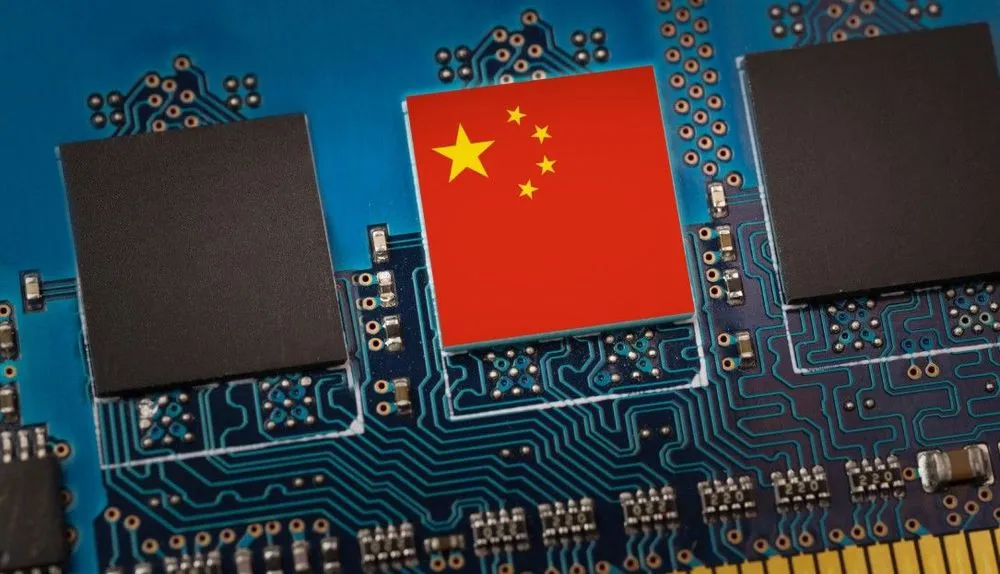Chinese 'government-controlled company' accused of stealthily buying UK semiconductor start-up
Updated at 1:30 pm EST to include a statement from Flusso and a British government spokesperson.
The British government has been accused of dropping the ball by allowing a company with alleged ties to the Chinese government to acquire a semiconductor start-up against the United Kingdom’s national interests.
Flusso, a company which was spun out of the University of Cambridge's Electrical Engineering department, designs tiny flow sensors that can be used to regulate liquid and air flows in advanced technologies with industrial and consumer applications.
It announced last August that it had been acquired by a “company and global private equity fund” without naming the ultimate acquirer. But a recent report by the tech news publication UKTN revealed that the start-up had been bought by an investment vehicle based in China called Shanghai Sierchi Enterprise Management Partnership.
“This deal sees a British company, critical to our economic security and future prosperity, captured by an entity set up to serve the needs of a systemic competitor,” said Alicia Kearns MP, who chairs the House of Commons foreign affairs committee.
“The opacity surrounding this takeover suggests that the buyers intended it to be carried out by stealth,” wrote Kearns in a letter to the government raising her concerns.
I have written to @grantshapps regarding Shanghai Sierchi Enterprise Management Partnership's takeover of Flusso.
— Alicia Kearns MP (@aliciakearns) January 11, 2023
This deal sees a British company, critical to our economic security & future prosperity, captured by an entity set up to serve the needs of a systemic competitor. https://t.co/DiJVDkqbrg pic.twitter.com/yD3jWHUbGD
Flusso’s chief executive Dr. Andrea De Luca denied to UKTN that the acquirers had any connection to the Chinese government. However Kearns’ letter warns that the investment vehicle is actually controlled by a Shanghai-based company that is itself 73% controlled by the Chinese government.
“In waving through this transaction, we are granting the Chinese Communist Party direct access to one of our leading tech start-ups in an area of vital strategic importance,” wrote Kearns.
Flusso's press officer said the company did not currently have a press release or statement on the matter, but said "the assertion that the deal did not go through the NSI [National Security and Investment] process is completely wrong. From Flusso's perspective, the correct process was followed and it's for the investment security unit at BEIS [the Department for Business, Energy and Industrial Strategy] to comment on how (if at all) Flusso connects to national security."
A government spokesperson did not directly address the acquisition.
"While commercial transactions remain primarily a matter for the parties involved, the Government routinely monitors acquisitions across the economy in case of national security concerns," they said. “The Business Secretary has powers under the National Security & Investment Act to intervene in acquisitions where necessary.”
Retroactive review
In her letter Kearns requested the government review the takeover retroactively under the U.K.’s National Security and Investment Act, a law that came into force last year to allow the government to “scrutinize and intervene in certain acquisitions” in 17 sensitive areas of the economy.
The law was introduced after the U.K.’s largest microprocessor factory, known as the Newport Wafer Fab, was acquired for £63 million ($76 million) by Chinese-owned Nexperia amid the global semiconductor supply shortage.
That acquisition had initially been reviewed and given the green light by the Department for Business and the National Security Advisor. But in a report titled “Sovereignty for Sale” published in April 2022, the Foreign Affairs Committee accused the government of failing to take seriously the British national interest in the ownership of the Newport Wafer Fab.
The British government subsequently announced last November that it was ordering Nexperia to sell at least 86% of the acquired company. It argued that the acquisition posed a risk to national security relating to “technology and know-how that could result from a potential reintroduction of compound semiconductor activities at the Newport site, and the potential for those activities to undermine UK capabilities.”
In its statement in response, Nexperia said it was “shocked by the UK Government’s decision” and “does not accept the national security concerns raised.”
“We are genuinely shocked,” the company said. “The decision is wrong, and we will appeal to overturn this divestment order to protect the over 500 jobs at Newport.”
Alexander Martin
is the UK Editor for Recorded Future News. He was previously a technology reporter for Sky News and is also a fellow at the European Cyber Conflict Research Initiative.



